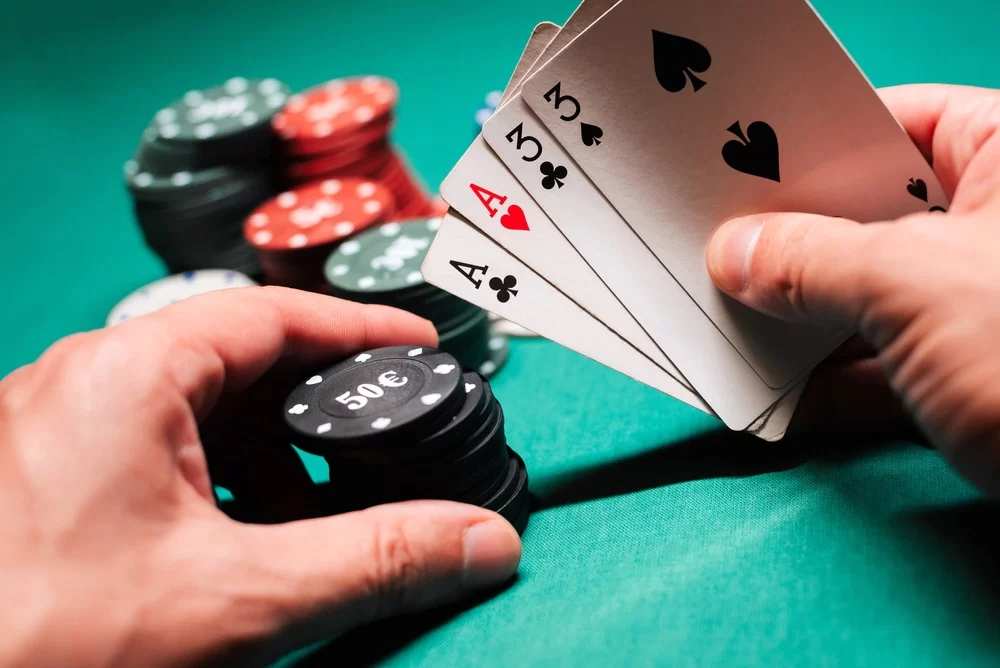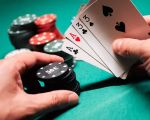
- Understanding-the-Poker-Tournament-Landscape
- Building-a-Solid-Foundation-in-Poker-Skills
- Advanced-Strategies-for-Tournament-Success
- Learning-from-Real-Cases-and-Adapting-Your-Play
- Where-to-Find-the-Best-Poker-Resources
1. Understanding the Poker Tournament Landscape
When aiming to improve your poker skills for tournaments, it’s essential first to grasp the unique environment these events create. Unlike cash games, tournaments come with structured blind increases, changing stack sizes, and an escalating pressure that demands a different mindset and approach. Tournaments require patience, adaptability, and a strategic balance between aggression and caution.
In a typical poker tournament, your goal isn’t just to win pots but to survive and accumulate chips steadily. Recognizing the dynamics of chip utility—where a chip’s value shifts as blinds rise—can shape your decisions significantly. This foundational understanding sets the stage for deeper skill enhancement and strategic adjustments tailored for tournament play.
1.1 The Importance of Patience and Timing
Many new players struggle with impatience, eager to play every hand. However, in tournaments, selective aggression wins the day. Timing your moves to capitalize on opponents’ mistakes or exploit their tendencies can multiply your chip stack and improve your chances of a deep run.
1.2 Adapting to Different Stages of a Tournament
Each stage of a tournament demands a shift in strategy. Early rounds allow for more speculative play, while middle stages require tightening up to conserve chips. Near the bubble and final table, the pressure intensifies, and adjustments become critical. Developing a mental roadmap for each phase helps sharpen your tactical focus.
2. Building a Solid Foundation in Poker Skills
Improving your poker skills for tournaments starts with strengthening core abilities. This foundation encompasses mastering fundamental concepts like pot odds, hand ranges, position, and opponent profiling. Without solid basics, advanced strategies won’t hold up under pressure.
2.1 Understanding Position and Its Power
Position in poker is often called the most crucial factor. Playing more hands in late position gives you valuable information and control over pot size. A strong grasp of positional play enables you to apply pressure effectively or fold without regret.
2.2 Calculating Pot Odds and Expected Value
Another pillar is the ability to assess pot odds and expected value (EV). Knowing when a call or a fold is profitable based on these calculations separates winning players from the rest. It’s not just about intuition but also about making mathematically sound decisions.
2.3 Reading Opponents and Adjusting Tactics
Observing betting patterns, timing tells, and opponent tendencies can guide you toward better reads and smarter plays. This skill takes practice but is invaluable in tournaments where every chip counts.
3. Advanced Strategies for Tournament Success
Once fundamentals are in place, refining your tournament poker skills involves incorporating advanced concepts that give you an edge over the competition.
3.1 Leveraging Aggression to Control the Table
Aggression is a double-edged sword in tournaments. Well-timed raises and re-raises can force opponents into difficult decisions and accumulate chips quickly. However, reckless aggression can lead to early elimination. The key lies in balancing aggression with board texture and opponent tendencies.
3.2 The Power of ICM (Independent Chip Model)
Understanding ICM is critical in tournaments, especially near payout bubbles. This model helps you evaluate the true monetary value of your chips and make decisions that maximize your expected cash value rather than just chip accumulation.
3.3 Adjusting Your Range and Playstyle Dynamically
Top tournament players constantly shift their strategy based on stack sizes, opponent types, and table dynamics. This flexibility is a hallmark of skilled tournament play. Knowing when to tighten up or loosen your range is essential for long-term success.
4. Learning from Real Cases and Adapting Your Play
Real-world examples can powerfully illustrate how theory translates into practice. Consider the story of a semi-professional player who, after several failed attempts, started tracking his tournament hands and analyzing mistakes. By identifying a tendency to overcommit with marginal hands, he adjusted his play and went on to cash in multiple mid-stakes events.
This example shows the value of self-reflection and data-driven learning. Another notable case is from the 2020 online poker boom, where players who adapted to faster, aggressive playstyles thrived, while those stuck in rigid strategies fell behind. These stories emphasize the importance of evolving your game continually.
By reviewing your own play regularly and seeking feedback from experienced players, you can uncover leaks and transform weaknesses into strengths. This process is essential for anyone serious about improving poker skills for tournaments.
5. Where to Find the Best Poker Resources
To effectively improve your poker skills for tournaments, having access to the right resources is crucial. Platforms that offer a combination of instructional content, hand analysis tools, and community interaction can accelerate your learning curve.
For players looking for curated recommendations of poker tools, training sites, and merchandise tailored to tournament players, CasinoScope offers a comprehensive guide to the most suitable products and services. Whether you’re searching for software to analyze your hand history or books from top pros, CasinoScope ensures you find high-quality, relevant options that fit your needs.
Investing time in structured study, combined with practical experience and smart use of resources, forms the backbone of continuous improvement in tournament poker.








